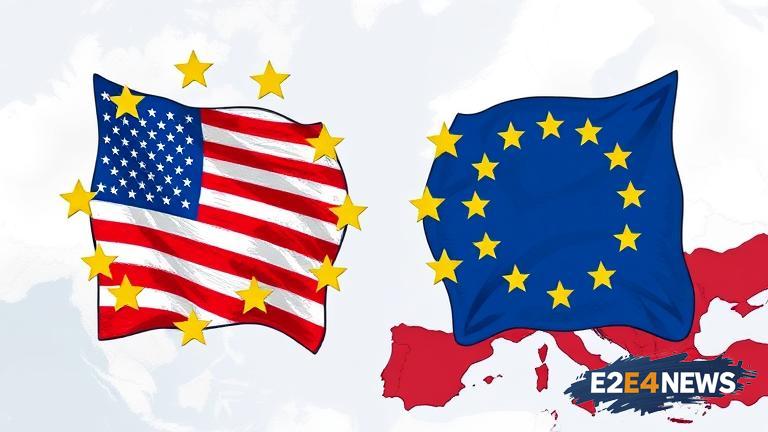The United States has imposed a 30% tariff on various European goods, including wine, cheese, and olives, in a move that threatens to disrupt trade relations between the two economies. The tariffs, which came into effect recently, are expected to have a significant impact on European exporters, who will now face higher costs and reduced demand for their products. The move is seen as a response to the European Union’s subsidies to aircraft manufacturer Airbus, which the US claims are unfair. The World Trade Organization (WTO) has ruled in favor of the US in the dispute, allowing the country to impose tariffs on EU goods. The EU has vowed to retaliate with its own tariffs on US goods, sparking fears of a trade war. The tariffs will affect a range of European products, including wine, cheese, olives, and aircraft parts. European exporters are concerned about the impact of the tariffs on their businesses, with some predicting significant losses. The tariffs will also affect US consumers, who will face higher prices for European goods. The move has been criticized by some as a protectionist measure that will harm both US and EU economies. The US and EU have a long-standing trade relationship, with the EU being one of the US’s largest trading partners. The tariffs have sparked concerns about the future of this relationship and the potential for further trade tensions. The EU has called for a negotiated settlement to the dispute, but the US has shown no signs of backing down. The tariffs are also seen as a blow to the WTO, which has been struggling to maintain its authority in the face of rising protectionism. The US has been critical of the WTO’s dispute settlement process, which it claims is biased against the country. The EU has defended the WTO, saying that it is essential for maintaining a rules-based trading system. The tariffs have also sparked concerns about the impact on global trade, with some predicting that they could lead to a wider trade war. The US and EU are major players in global trade, and any disruption to their trade relationship could have significant consequences for the global economy. The tariffs are seen as a test of the EU’s ability to respond to trade pressures, and the bloc is under pressure to defend its interests. The US is also facing pressure from its own businesses, which are concerned about the impact of the tariffs on their exports to the EU. The dispute has highlighted the need for a new trade agreement between the US and EU, which would provide a more stable and predictable trading environment. The two sides have been negotiating a new agreement, but progress has been slow. The tariffs have added urgency to these negotiations, and there are hopes that a deal can be reached soon.
